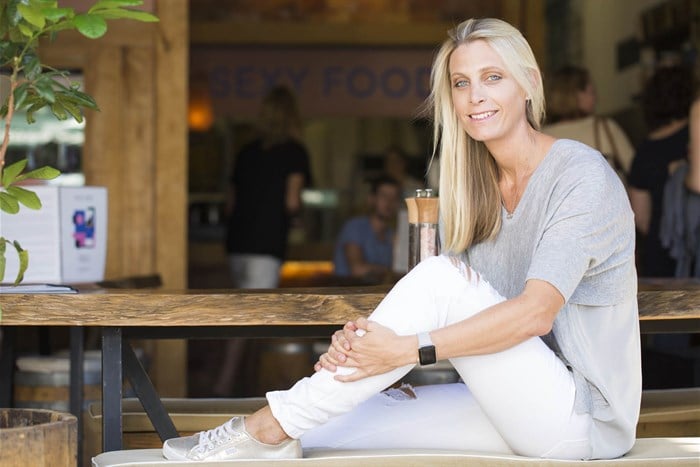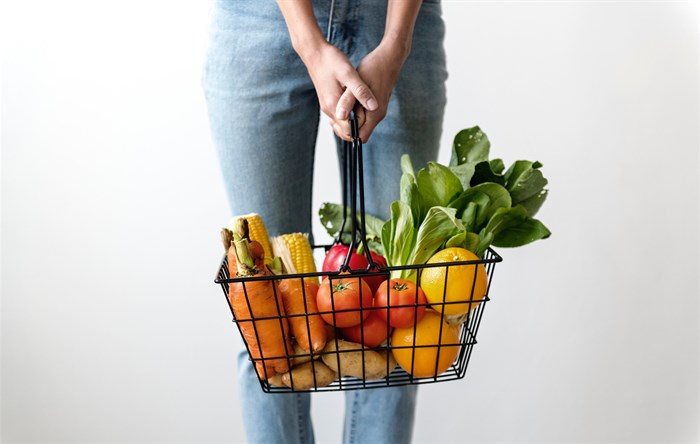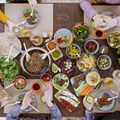We've just celebrated Earth Day, an important global acknowledgement of the work that we need to be doing to protect our planet, and this year the work feels more important than ever.
The United Nations and its Intergovernmental Panel on Climate Change (IPCC) have given us 12 years to make a real change to keep the warming of the planet to max 1.5°C – a rise of just half a degree more could cause catastrophic weather fall out.

Tammy Fry
It’s up to us to make the changes necessary to disrupt climate change. But where do we start? Of course, there are many changes we can make to our daily lives but recent research has shown huge reductions in the eating of meat is now essential to fight climate change. While reducing our carbon footprint in any way possible is important, swapping the meat on your plate for a plant-based protein alternative is even more critical – even if it’s just for one day a week #meatfreemondays.
With that in mind, here are some ideas on how to roll out a significant change in your life – meat-free and otherwise.
The UN’s given us 12 years? Well, here’s how you can make real change in 12-months.

Photo by rawpixel.com from Pexels
May – Recycle
For the month of May, may we all pledge to make use of recycling facilities? If there aren't any, ask your council for them. What cannot be recycled, find a way to reuse the item. If it cannot be recycled or reused, ask yourself whether you really need to buy the product again in the future, and commit to being more mindful of your purchasing decisions. And while you’re at it, why not participate in the global Meatless May challenge? You could save 45,260 litres of water.
June – Wash your water clean
With World Ocean Day coming up on 8 June 2019, let’s keep our water systems clean by choosing eco-friendly, low-phosphate dishwashing liquid and washing powder brands. Phosphates stimulate algal growth when discharged into the water supply, lowering oxygen levels and killing plants and fish. Coming full circle, when we eat fish, we ingest those pollutants that have bioaccumulated in the fish. The solution is to rather go fish-free. Going fish-free also helps us cut down on unstainable fishing methods that are threatening vital fish stocks and the life of our oceans.
July – Feed your garden
With winter rolling in and the garden becoming bare, why not give your garden a hearty breakfast by composting? Don’t have a garden? It can also be used to fertilise lawns, trees, bushes and houseplants or shared with a neighbour or friend who does have a garden. Store your coffee beans, fruit and vegetable scraps and loose-leaf tea in a Tupperware in the fridge and then drop it off at a friend, school or public drop off point where there is composting.
Rather than discarding scraps, you can compost some foods and turn them into a nutrient-rich fertiliser for your garden.
August – Save water
Let’s make water wasting a thing of the past this August. Only flush toilets if really needed; take a two-minute shower; take a cold shower (if you can handle it) rather than waiting for the water to heat up and consider installing water-saving taps in the bathroom and kitchen. Collect water from your shower, bath and basin and reuse it to flush your toilet, water the garden and wash your car.
Also, by eating a plant-based diet, you can significantly reduce your water footprint. Did you know eating one meat burger is the equivalent of three months of flushing the toilet or two months of showering?
September - Plant seeds of change
Take time during the month of spring to plant food seeds in the garden or in-house pots, jars or containers. Growing herbs at home are surprisingly simple, even for us non-green finger folk. Planting herbs at home allows you to have delicious ingredients within arm’s length when cooking at home. This is not only economical but also impacts the environment less as you eliminate transport costs and plastic from the equation. Mint, basil, chives, thyme and coriander are great all options.
October – Avoid food waste
Food waste that ends up in landfills produces a large amount of methane – a more powerful greenhouse gas than even CO². For the month of October, minimise the amount of food waste you create by pickling and fermenting; treating the expiring date as a guide only; and storing food in the right place (i.e. does it need to be kept in the fridge or at room temperature?). Additionally, do big meal prep for the week and then freeze your meals until you are ready to eat them. Label your containers so you can keep track of what is what. This one pot chilli non-con carne is a great meal prep recipe and these meat-free meatballs freeze really well too and can be added to almost anything.
November – Go plastic-free
It is estimated by 2050 there will be more plastic in the sea than fish. The main source of plastic pollution in the sea is not plastic straws but rather fishing lines. Take note and see January, March and June.
Participate in or organise local beach clean-ups. Pick up what you find no matter how big or small; neglected lightweight debris will be blown into the sea. Bring your reusable straw, coffee cup, thermos flask and containers with you when you know you may eat out.
When shopping, refuse plastic carrier bags or at least reuse them. Cloth bags are better and have more longevity.
December – Reduce for more
It may be the silly season, but that doesn’t mean you need to be frivolous with your spending. Commit to buying less in December. Save time shopping, save money and save the planet by avoiding items that are essentially wasteful due to their temporary existence. By reducing our consumption of things, we free up our lives to have deeper connections that are based on meaningful experiences that inherently create everlasting memories and are fulfilling for the soul. For the pressies you do buy, try to buy local – by supporting small local businesses and reducing your carbon footprint – and try to buy items that last and are not make of breakable plastic or use batteries.
January - Go vegan for the month
Start your new year’s resolutions with a food revolution and eat plant-based for the month of January. Going plant-based is one of the most impactful and immediate actions you can take to help alleviate your carbon footprint.
Climate change, overexploited natural resources, water and air pollution, deforestation, wasted land, ocean dead zones and health problems, such heart disease and cancer, are all linked to the consumption of meat, eggs and dairy products.
This means eating lots of veggies, fruit, legumes, grains, starches, nuts and seeds while leaving the meat, dairy, fish and eggs off your plates. Not only are there thousands of creative recipes online and in books (enough for even the fussiest eaters), but there are also spins on the world and traditional favourites too. Supermarkets also stock meat alternatives that have the same taste and texture as meat, are easy to make and bound to fool any unsuspecting person at the braai.
February – Get romantic on date night
Improve the ambience and dine by candlelight on a date night and every other night if you’re up for the full February month challenge – saving electricity. While you’ve switched off the lights, why not turn off the TV and cellphones off, reducing the noise pollution and distractions whilst improving connection and presence with the people around you. (Yes, load shedding means we are often electricity-free anyway – but let’s make the best of it.)
March – Do Meat-Free Mondays
Continue riding January’s veggie train and eat meat-free every Monday for the month of March. Make use of convenient meat alternatives, eat lots of colourful ingredients and get creative with textures and combinations.
A 2018 research paper by the University of Oxford stated that cutting out animal products cuts down a person’s carbon footprint by 73%. But even going meat-free once a week and/or reducing the amount of animal protein from your diet has a positive impact on the environment in which you live. See January’s challenge for a reminder. It has been reported that 75% of South Africans are choosing to leave meat off their plates once a week or more.
David S Gardner 22 Feb 2019
April - Buy local, buy bulk
Make it a habit this month to visit your local farmers market (great place to pick up fresh, often organic, locally grown veggies) on the weekend and shop in large quantities, either from the market or a bulk food store. Purchasing in bulk uses less packaging than individual portions. Don’t forget to bring your own shopping bags and containers.




























![Today, Halo and Demographica announce a new specialist agency, Second Rodeo]], headed up by Mike Stopforth (left). Dean Oelschig, managing partner and founder of Halo (right) says they will work as a group but ultimately, each agency will be an individual specialist](https://biz-file.com/c/2505/772543-64x64.jpg?2)








